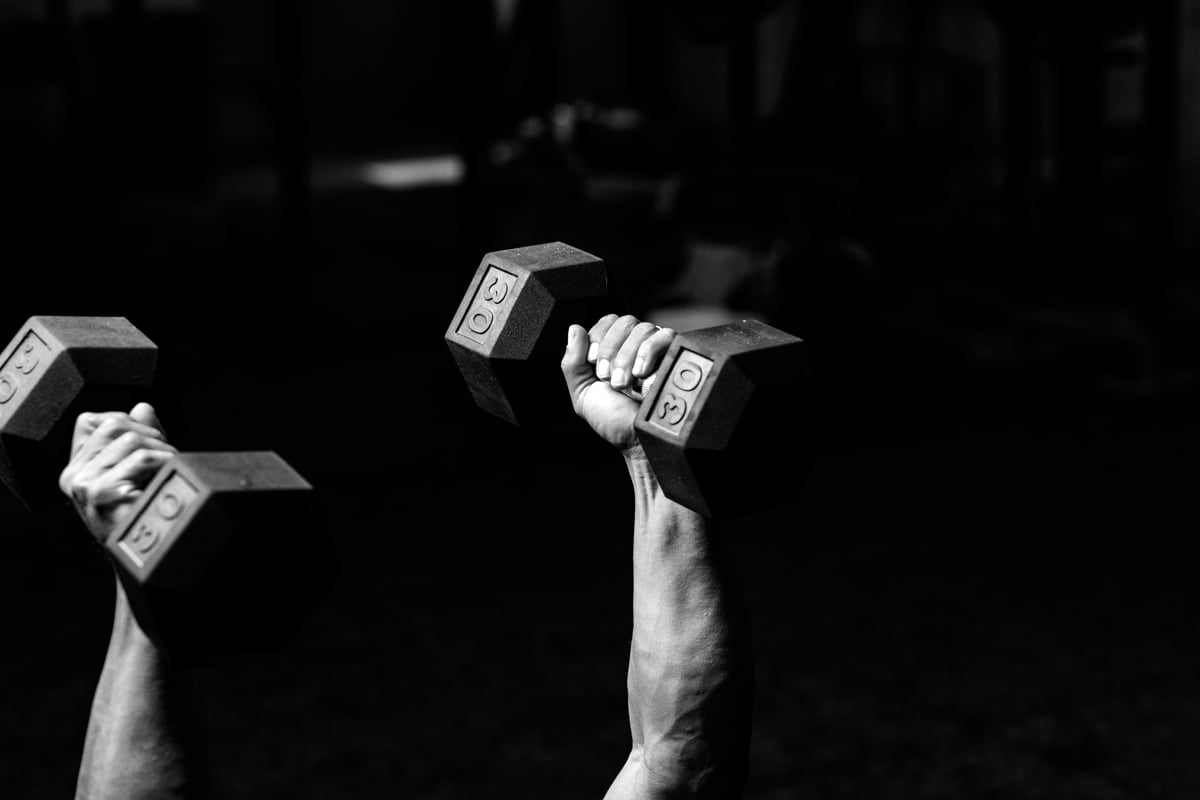Philippe Geoffrion
Level 7 Valued Member
Good Day StrongFolks!
I have just competed in a powerlifting meet. But that’s not the point…the point is despite my never ending quest for strength, the whole meet prep killed any wish to do a single powerlift…however, my desire to lift heavy things remains healthy as ever!
These conditions have led me to training in my favorite fashion…Westside, GTG, strength practicing, old time heavy lifts on a very near daily frequency. It’s just too fun.
Basically, I work up to a heavy single (a la Westside) on a diffferent lift everyday. However, the heavy lifts are much less demanding than the power lifts.
These aren’t simple barbell moves either; One Arm push-ups, weighted chins, pistols and similar calisthenics/kettlebell exercises fit the bill.
Monday is a press/Tuesday a pull/Wednesday a lower day. The rest of the body is trained afterwards in a less draining fashion. For example, before leg day, I may do Hindu squats or renegade lunge reps ie hardly killers and they usually make my legs feel ready and primed for the next day. In fact, they basically serve as a warmup the day before that muscle group is hit.
For each heavy lift, I will alter the next session for that body part to be as dissimilar to the previous lift. For lower days this might be a heavy pistol one day, and Zercher squats the next. For pressing, I alternate one overhead and one horizontal press. And pulling is easy on the spine such as weighted chins/OAC practice or what I did today, single arm deadlifts.
Though this seems incredibly random, I must say it has made training fun again. My body feels the best it has in months and I don’t feel all that fatigued. While specificity is indeed important, I recount how my best barbell gains came after a two month layoff. Maybe coincidentally during this time, I was able to heal and still keep getting stronger. I think the spinal decompression, single limb work and high tension calisthenics really made me stronger in ways the barbell wasn’t helping any more.
I understand training serves a greater function than entertainment. However, shouldn’t it make you feel good overall? And if it does, isn’t it making you stronger?
I enjoy exploring variations. Pr’ing on random lifts. I almost locked out a 265 lbs One Arm deadlift today but the hook grip killed my thumb…almost halfway to Larry!
I suppose I might be alone in this thread and was quite excited to share this. It’s a training style that seems to always make sense to me. I remember Pavel, writing a brief mention in Naked Warrior of a “high mileage lifter” successfully combining Conjugate and Sheiko. This makes sense to me now.
So…for all you StrongFriends out there. What kind of training do you find the most fun?
I have just competed in a powerlifting meet. But that’s not the point…the point is despite my never ending quest for strength, the whole meet prep killed any wish to do a single powerlift…however, my desire to lift heavy things remains healthy as ever!
These conditions have led me to training in my favorite fashion…Westside, GTG, strength practicing, old time heavy lifts on a very near daily frequency. It’s just too fun.
Basically, I work up to a heavy single (a la Westside) on a diffferent lift everyday. However, the heavy lifts are much less demanding than the power lifts.
These aren’t simple barbell moves either; One Arm push-ups, weighted chins, pistols and similar calisthenics/kettlebell exercises fit the bill.
Monday is a press/Tuesday a pull/Wednesday a lower day. The rest of the body is trained afterwards in a less draining fashion. For example, before leg day, I may do Hindu squats or renegade lunge reps ie hardly killers and they usually make my legs feel ready and primed for the next day. In fact, they basically serve as a warmup the day before that muscle group is hit.
For each heavy lift, I will alter the next session for that body part to be as dissimilar to the previous lift. For lower days this might be a heavy pistol one day, and Zercher squats the next. For pressing, I alternate one overhead and one horizontal press. And pulling is easy on the spine such as weighted chins/OAC practice or what I did today, single arm deadlifts.
Though this seems incredibly random, I must say it has made training fun again. My body feels the best it has in months and I don’t feel all that fatigued. While specificity is indeed important, I recount how my best barbell gains came after a two month layoff. Maybe coincidentally during this time, I was able to heal and still keep getting stronger. I think the spinal decompression, single limb work and high tension calisthenics really made me stronger in ways the barbell wasn’t helping any more.
I understand training serves a greater function than entertainment. However, shouldn’t it make you feel good overall? And if it does, isn’t it making you stronger?
I enjoy exploring variations. Pr’ing on random lifts. I almost locked out a 265 lbs One Arm deadlift today but the hook grip killed my thumb…almost halfway to Larry!
I suppose I might be alone in this thread and was quite excited to share this. It’s a training style that seems to always make sense to me. I remember Pavel, writing a brief mention in Naked Warrior of a “high mileage lifter” successfully combining Conjugate and Sheiko. This makes sense to me now.
So…for all you StrongFriends out there. What kind of training do you find the most fun?



